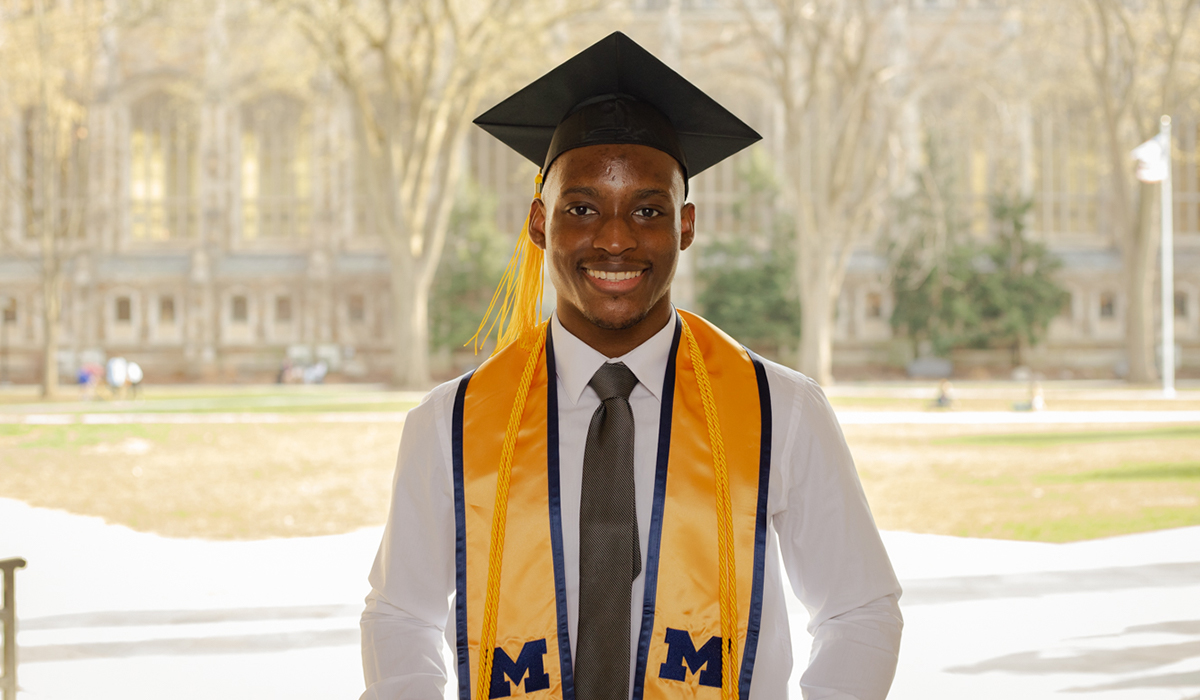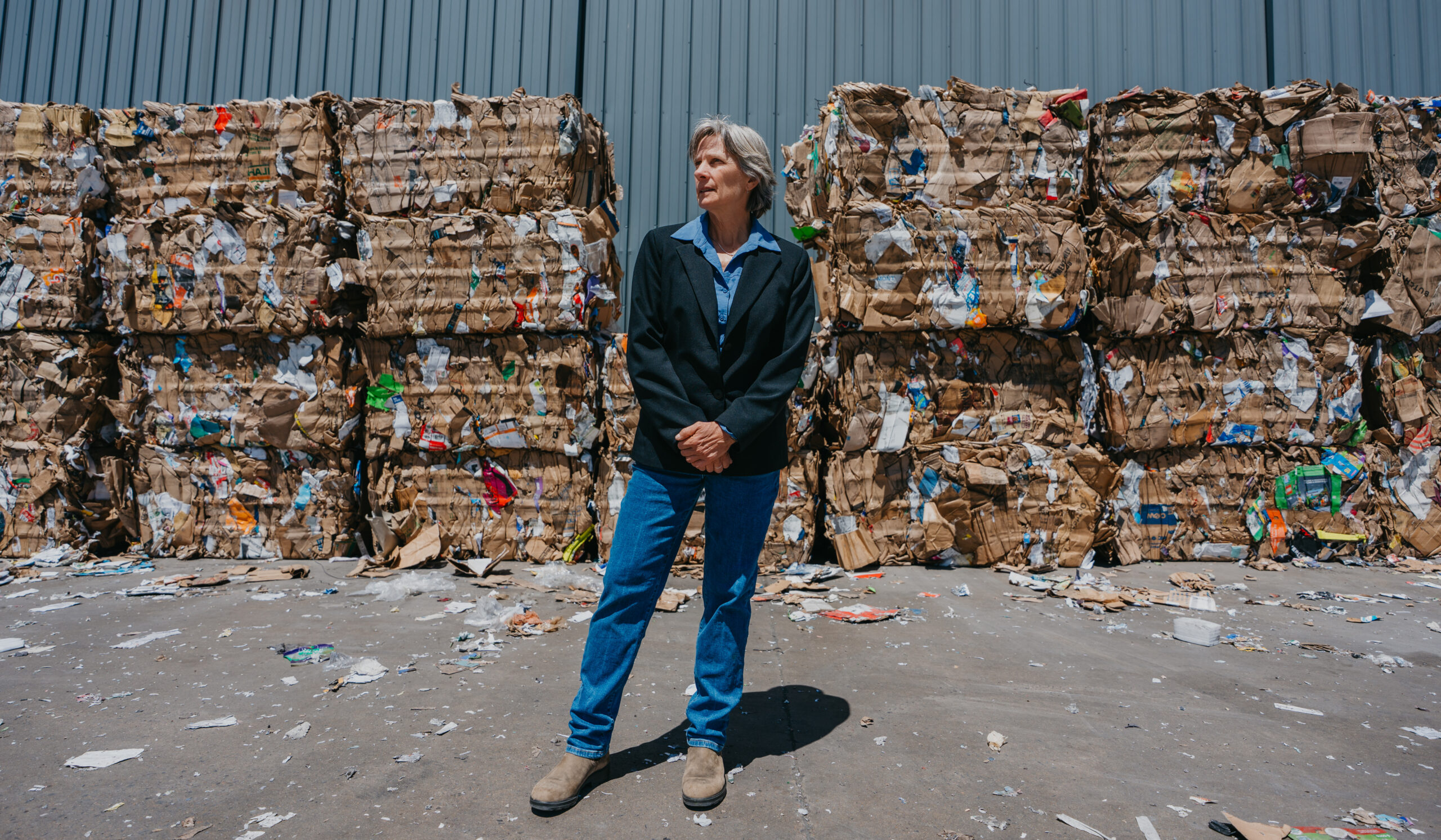As this year’s recipient of the Raoul Wallenberg Fellowship, Darius Moore, ’21, is set to volunteer and conduct research on health disparities in the Dominican Republic. The project reflects his commitment to improving the health outcomes of others. The fellowship provides $25,000 to a graduating senior to carry out an independent project anywhere in the world during the year after graduation. It honors Raoul Wallenberg, ’35, a Swedish diplomat who coordinated the rescue of tens of thousands of Jews in Budapest, Hungary, during World War II.
Michigan Alumnus gleaned the following in a conversation with Moore.
WHILE PURSUING a double major in biology, health, and society (BHS), and Spanish, Moore examined the societal roots of health inequities among minoritized communities. For his BHS major, Moore studied “upstream factors,” such as discriminatory housing and zoning laws, and how that affects health outcomes. During his freshman year, he participated in the Undergraduate Research Opportunity Program and assisted Gary Harper, a professor in U-M’s School of Public Health, with his research on the experiences of gay and bisexual men in Kenya.
WITH THE HELP of Harper, for the Wallenberg Fellowship proposal, Moore fused his interests in medicine and health discrimination. He designed his project to focus on the health care experiences and health outcomes of several minoritized groups in the Dominican Republic that regularly encounter discrimination: Haitians, Afro-descendant Dominicans, and individuals living with HIV. Said Moore, “It combines a lot of the ideas that I have, like how socioeconomic status — and perceptions of belonging, race, and sexual identity — impact health care and health outcomes and how people navigate the health system.”
RAISED BY A mother who was a nurse, Moore attributes his early interest in medicine to her career. “As a child, I really got to hear a lot about her work and the things she did in the health care field,” said Moore, who grew up in a south suburb of Chicago. During his childhood, Moore was also personally conscious of the inequities in access to health care facing minorities. He recalled witnessing instances of medical discrimination against his own family, adding he “didn’t really have words to put to them. I knew they happened, but I didn’t know why.”
MOORE FIRST WENT to the Dominican Republic with Timmy Global Health, a nonprofit whose mission is to empower students and volunteers to tackle global health challenges firsthand. When COVID-19 travel restrictions are lifted, he will return there and start his fellowship under the sponsorship of La Clínica de Familia, a nongovernmental organization and HIV clinic that provides assessment, treatment, and education for members of the community.
MOORE IS ALREADY thinking of how he can synthesize his engagement in medicine, social justice, and international affairs later in his career. “What I hope to be doing is not only working as a physician but working as a physician who has a hand in public health research and implementing public health programs that address barriers and result in good health care outcomes.”
Alexander Satola is a senior in LSA and the summer deputy editor of The Statement, the magazine of The Michigan Daily.





